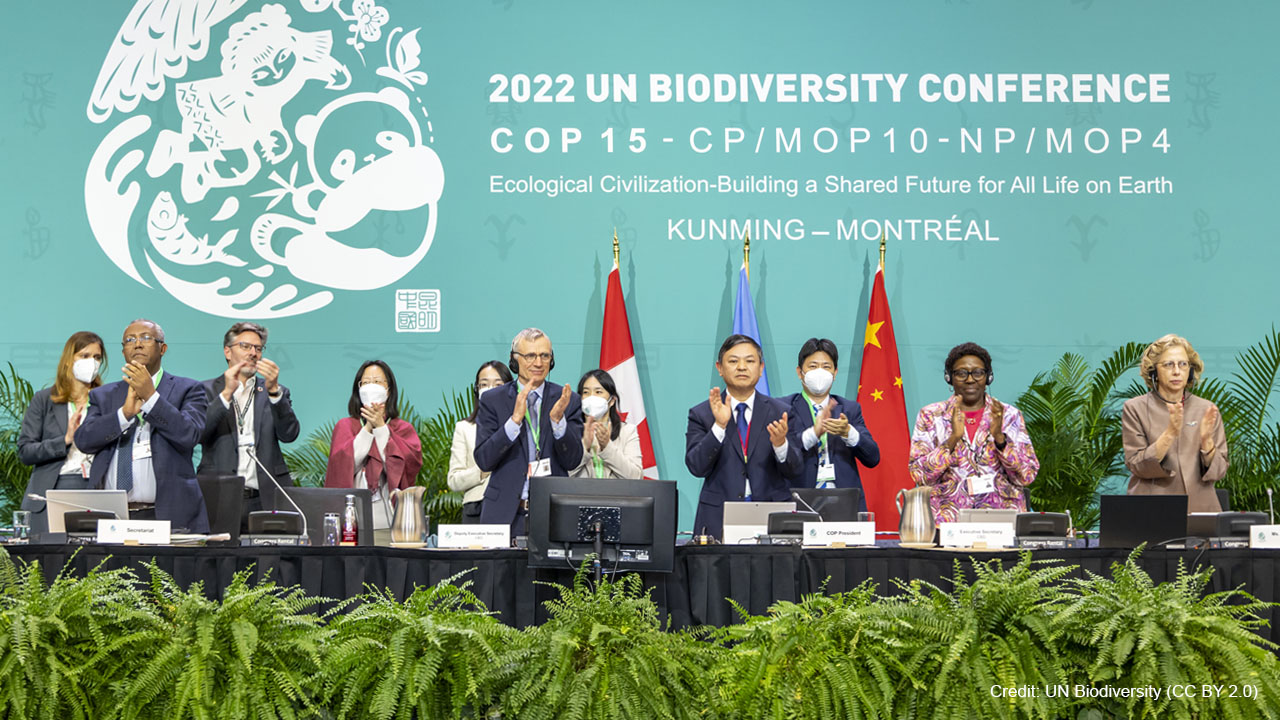The Future Of Biodiversity Compliance

For many years, scientists have been telling us that the loss of nature around the world amounts to a global biodiversity crisis.
…
The media and the public have taken the message on board, but the political response has been much slower. Finally, at the end of last year, we saw the breakthrough we have been waiting for – and it means that we will all have to raise our game.
The Paris Agreement for Nature
On 19th December 2023, the Kunming-Montréal Global Biodiversity Framework (GBF) was adopted by the CoP15 of the Convention on Biological Diversity. The framework is sometimes called the ‘Paris Agreement for nature’, as it heralds a seismic shift in how the world will tackle the biodiversity crisis. That’s great news for the planet, but what does it mean for businesses?
What the GBF?!?
The framework is a call to action for all national governments, detailing what they need to do in order to help achieve the four Global Goals for 2050. This plan takes the form of 23 Global Targets, setting out actions to halt and reverse biodiversity loss that need to be initiated immediately and completed by 2030. Eight of these involve directly reducing threats to biodiversity, while the other 15 are concerned with sustainable use and benefit sharing. Three of them in particular have far-reaching implications for the private sector.
Target 14 addresses ‘mainstreaming’ – the full integration of all the values of biodiversity into policies, strategies, regulations and even national accounting. The aim is to align all private and public sector activities with the Goals, especially sectors with ‘significant impacts on biodiversity’ like Travel & Tourism. This means that companies will need co-ordinated biodiversity strategies that look at all their activities across all departments and operations.
Target 15 centres around monitoring, assessing and reporting impacts on biodiversity, not only in operations but also in supply and value chains. It urges governments to ‘encourage and enable’ businesses to do this – especially large and transnational companies – with ‘legal, administrative or policy measures’. It also stresses the importance of progressively reducing negative impacts and increasing positive impacts on biodiversity. This confirms what we expected: that, as with carbon emissions, businesses will increasingly need to provide detailed biodiversity monitoring and reporting together with demonstrable efforts to reduce damage and restore nature.
Target 16 is about tackling unsustainable consumption at all levels, especially reducing food waste, overall waste generation and the ‘global footprint of consumption’. The approach is to support individuals to make sustainable choices, but policy, legislative and regulatory frameworks are specifically mentioned as mechanisms for doing this. This means that businesses will need to have a full understanding of environmental impacts up and down their value chain to be sure they comply with new regulations.
A Framework for Change
The GBF represents a huge commitment at the highest possible level to fundamentally change how biodiversity is valued by governments, businesses and people. The Targets give concrete steps for achieving this, and as they are implemented country-by-country they will start to affect us all. Like the Paris Agreement, they mark the global transition from talk to action. Fortunately, ANIMONDIAL is here to help you make that transition.
The Nature Positive Equation
By talking about reducing negative impacts and increasing positive ones, the GBF echoes the Nature Positive Tourism approach promoted by ANIMONDIAL and presented by the World Travel & Tourism Council (WTTC) in their Nature Positive Travel & Tourism report. The Roadmap found in the report and on our homepage shows how any business in the sector can become a beacon of Nature Positive Tourism. By following these simple steps, with support from resources in the online Toolbox and ANIMONDIAL’s consultancy services, travel companies can get ahead of the game in meeting the obligations set out in the GBF.
Leading the Way
Travel & Tourism can present a huge threat to biodiversity, but it also has huge potential to be a Force for Good. At CoP15 an unprecedented coalition of the WTTC, the UN World Travel Organisation and the Sustainable Hospitality Alliance united behind the Vision for Nature Positive Travel & Tourism, calling on the industry to halt and reverse biodiversity loss by 2030. This announcement set the stage for a Nature Positive Travel & Tourism Partnership, an initiative which ANIMONDIAL plans to be at the heart of, and which we hope to have more news on very soon…
What you can do to become GBF-ready:
Use the Animal Footprint impact assessment tool to start the process of monitoring and reporting on your biodiversity impacts
Become a Guardian of Nature by signing up to the Vision for Nature Positive Travel & Tourism
Find out how we can help you develop a biodiversity protection policy, strategy, monitoring system or reporting framework by booking a free Discovery Call

